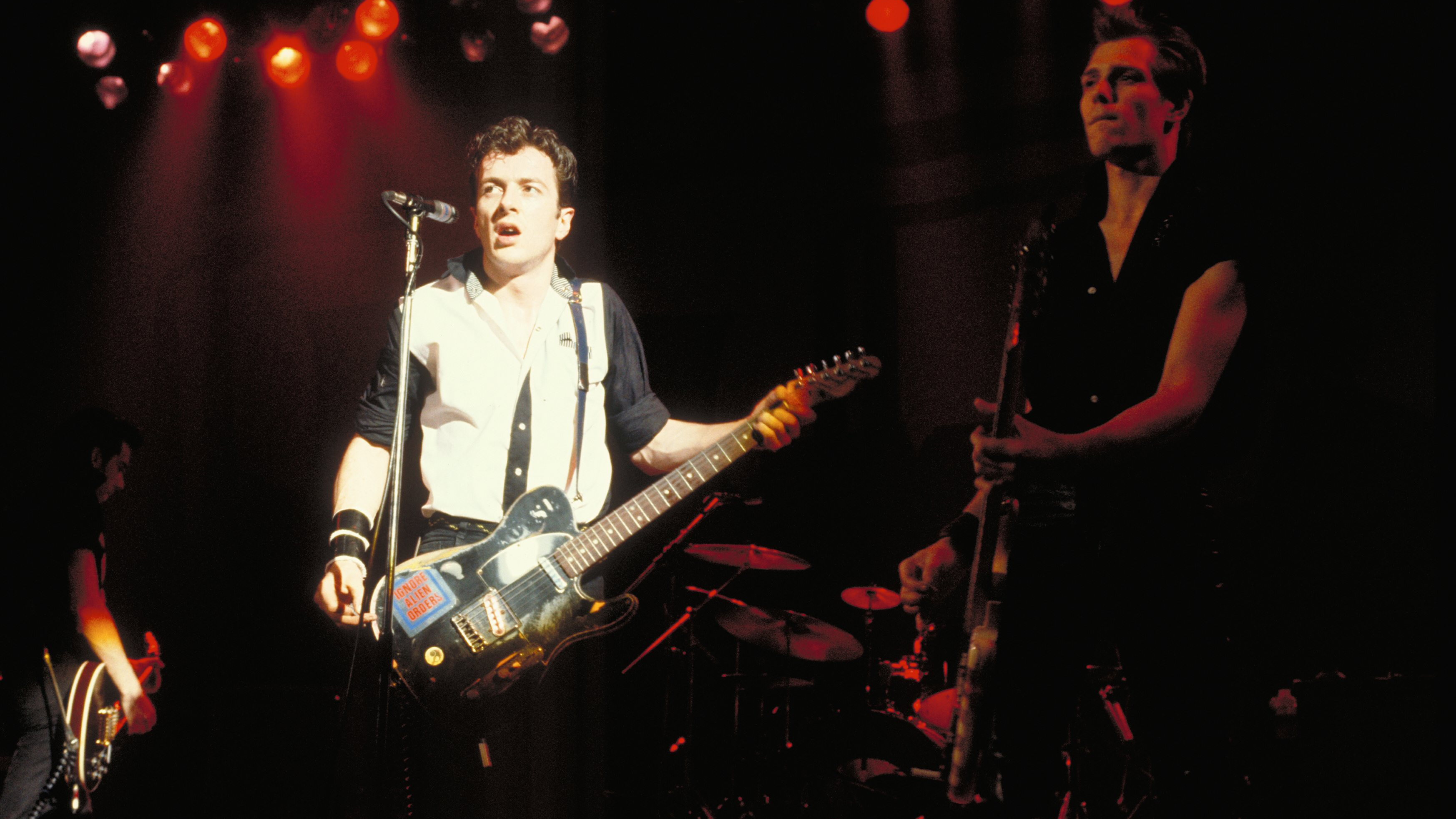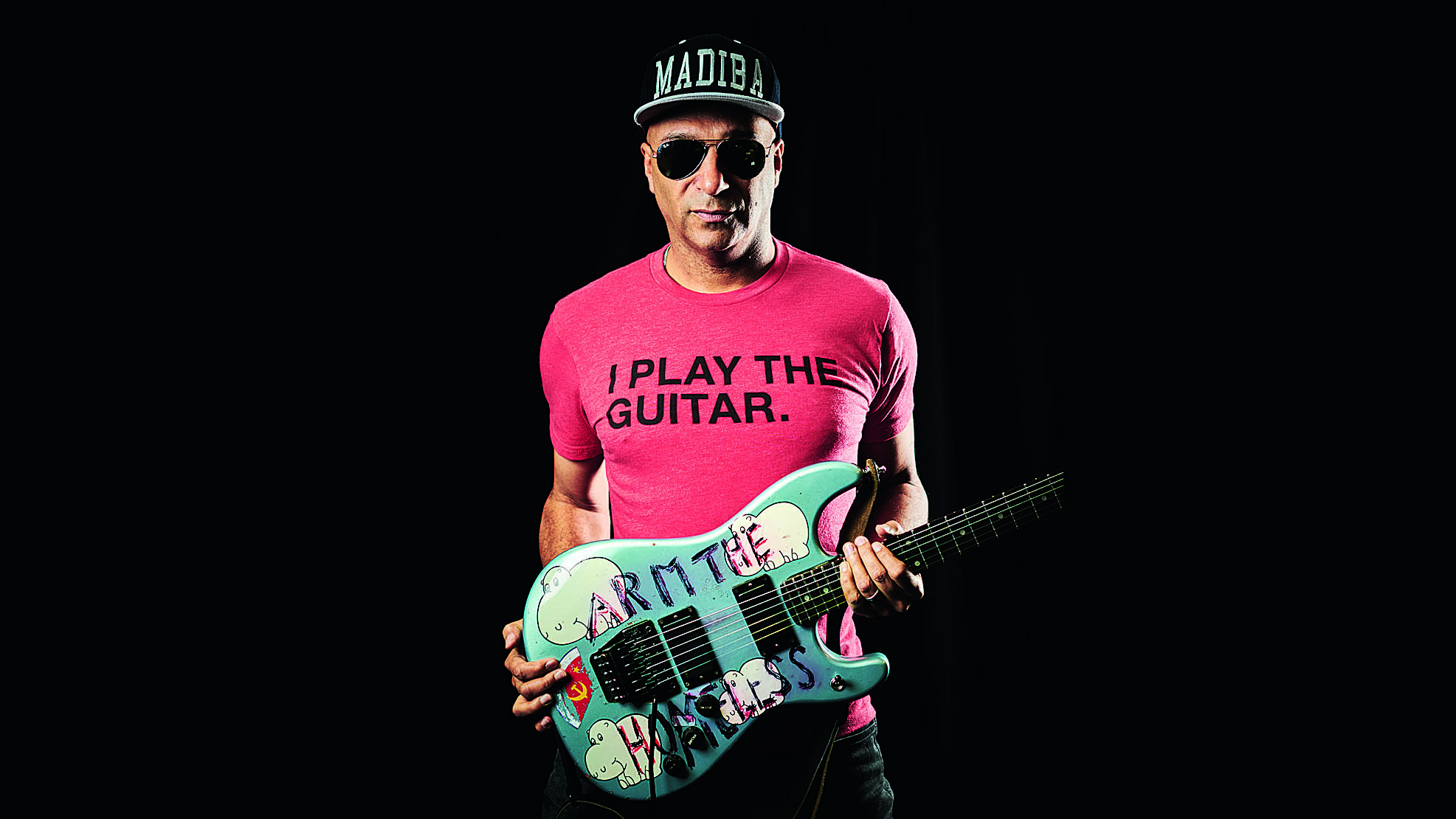The Clash: 5 songs guitarists need to hear (that aren't London Calling)
45 years ago The Clash released their debut album – here's five other places to start with the legendary band

Want all the hottest music and gear news, reviews, deals, features and more, direct to your inbox? Sign up here.
You are now subscribed
Your newsletter sign-up was successful
When they burst onto the embryonic punk scene in 1977, The Clash were a band on a mission. While other bands were overtly courting controversy or bashing out rudimentary three-chord shoutalongs, the west Londoners were already attempting to fuse the sounds they heard around them – rock and reggae – as early as their debut album. They were different.
But even that debut, with elements of ambition amongst its chaos and fury, was no indication of what the band would become. If anyone listening to White Riot thought the same band would be putting out a triple album within three years that featured disco, electro, funk, calypso and rap, then they had a level of foresight that means they must be a billionaire by now.
Sandinista! might not have been a total success, but the band’s lightning speed journey to that point via Give ’Em Enough Rope, London Calling and an almost unparalleled run of non-album singles was a supernova of creativity, leaving a trail of some of English music's greatest rock songs in its wake.
In Mick Jones, with his Les Paul Custom, and Telecaster-toting frontman Joe Strummer, The Clash had two great songwriters and a twin guitar attack to envy; Jones’ melodic lead playing helping Strummer to match the passion of his vocals on his instrument.
Just five songs by The Clash? We’ll give it go…
1. Complete Control – single (1977)
This 1977 single (included on the US version of The Clash’s debut album) was produced by Lee ‘Scratch’ Perry – in London to record Bob Marley & The Wailers – and is perhaps the high-point of the band’s year zero punk output. That’s not to say the UK release of The Clash is not the perfect punk album, because it is, but this tirade against all the ills perpetrated upon the band after their signing with CBS is a clear signpost that they had this stuff mastered and would soon be taking their sound forwards.
Perry agreed to the gig after hearing The Clash’s cover of Junior Murvin’s Police And Thieves on that debut album, but while the band’s fusion of punk and reggae would become a signature sound it isn’t really evident here.
Want all the hottest music and gear news, reviews, deals, features and more, direct to your inbox? Sign up here.
In the key of E, the song’s insanely catchy main riff is built fairly simply around an E major power chord at the seventh fret, with a syncopated downstroke strum pattern giving it that jerky, stop-start feel of pent up energy. Drums and bass then help drive things along, as a B major power chord at the seventh adds variety to the riff, through the chorus to the first solo. That kicks in after just one minute, with frontman Joe Strummer telling fellow guitarist Mick Jones, “You’re my guitar hero” as the latter transitions from some early Chuck Berry-inspired licks to a series of string bends around the 17th to 19th frets.
After another couple of runs through the main riff and chorus lead us to a partly arpeggiated outro and Jones’ second solo, taking place largely between the seventh and 12th frets on the top strings but slightly hidden in the mix.
Complete Control manages to be everything a three-minute cry of punk rock resistance against the music industry should be, while featuring not one but two guitar solos and enough nuance to suggest this was a band that would soon refuse to be contained by punk’s self-declared ‘rules’.
2. (White Man) In Hammersmith Palais – single (1978)
The Clash’s best song, and the third in a legendary run of singles that began with Complete Control, went via Clash City Rockers to conclude with this four-minute slice of musical perfection in June 1978. The band had attempted mixing the punk and reggae sounds of their west London homeland before, but on (White Man) In Hammersmith Palais they nailed it.
The song has a much slower, reggae-inspired beat than any of their previous work and an entirely untraditional structure – an anthem with no apparent chorus. Domino Records founder Laurence Bell perhaps described that dichotomy best when he wrote in Uncut in 2015: “By the end of it, you realise the whole song is a chorus.”
In the key of A major, and with a BPM of just 103 (London’s Burning on the debut album, for example, was played at 147), it is Paul Simonon’s bassline that really sets the reggae groove here, but Jones and Strummer employ an upstroke strum technique more reminiscent of ska than the punk rock of their earlier work.
There might have been nothing overtly fancy about the chording, based around A, E, G, D, C#m and F#m, but there would be no going back to power-chord punk from here.
3. Safe European Home – Give ’Em Enough Rope (1978)
Well, there are only three chords in the utterly infectious riff to Safe European Home, actually, but the way that E, A, B progression leaps out of the speakers from the moment you press play is testament to the production work of Sandy Pearlman (the man behind the distinctly unpunk Blue Öyster Cult). The Clash’s second album, Give ’Em Enough Rope, is a major label record in every respect, but in making it The Clash were able to hold fast to their principles and Safe European Home still sounds as though it could have been recorded live in one take.
The song absolutely rattles along, Jones and Strummer doubling up on the riff – give or take an odd variation – to really drive it into the listener’s brain either side of a brief, slower breakdown. The whole things slips into a dub section just after the two-minute mark, fading out almost completely before a Topper Headon drum roll brings everyone back for the big conclusion.
4. Clampdown – London Calling (1979)
The Clash’s days in the musically primitive pond of year zero UK punk were officially over by the time they threw a hatful of musical ideas into the pot for album number three, London Calling, in 1979. ‘Post-punk’ was already up and running by now, but this definitive album showed that The Clash at least were an original punk band fully capable of taking this music forward themselves.

The song eschews the clipped nature of the band’s earlier riffs, something Safe European Home had played around with, to let the chords ring out in a more traditional rock sense. In many ways Clampdown feels like it represents this melting pot of an album in microcosm, the band mixing rock with funk and disco rhythms in the key of D to create another timeless protest anthem: “You don’t owe nothin’ / so boy get runnin’ / it’s the best years of your life they wanna steal.”
You know you’ve written something special when Bruce Springsteen & The E-Street Band (massive Clash fans) see fit to cover it live, as they have done several times.
5. Somebody Got Murdered – Sandinista! (1980)
This atmospheric, noire offering from the hugely ambitious Sandinista! triple album rounds out our five, showing as it does the diversity of music on offer from a band that had always been more than a three-chord punk outfit. The cold, disturbing nature of the song’s narrative – about a random killing – is echoed in the sparse, clean guitar playing of Jones and Strummer here. By now the influence of post-punk on The Clash (and vice versa) is hugely evident, with traces of John McGeoch’s playing with The Banshees and Magazine to the fore here as the central riff bounces around between A, E, F#m and C#m chords.
But Somebody Got Murdered is no pastiche, and while the triple album that housed it, Sandinista!, is far from perfect, it is as musically ambitious an album as any band has ever attempted: punk, funk, jazz, early hip-hop, film noir, rock, electro, the entire musical landscape at the turn of the decade has a home here, and unbelievably The Clash make it all work as often as they fail.